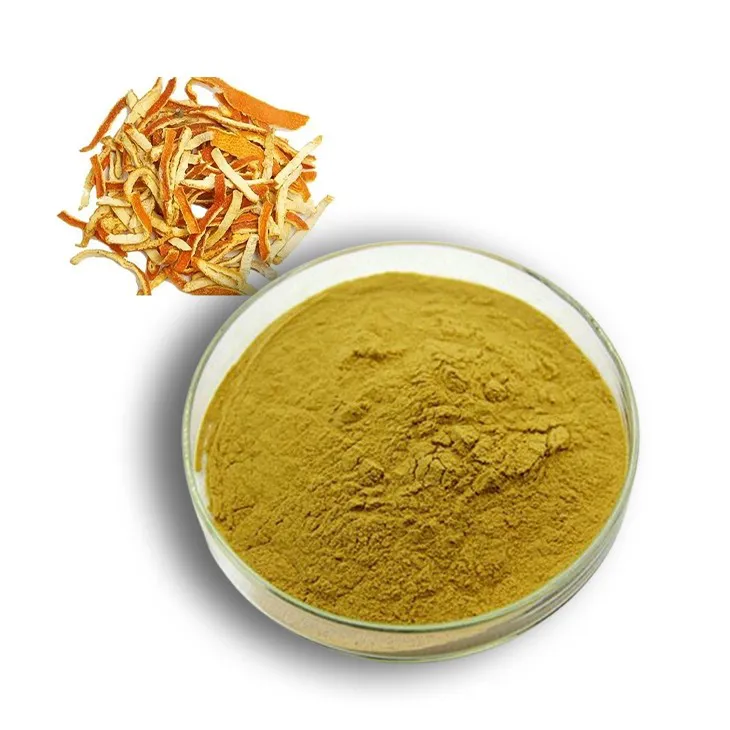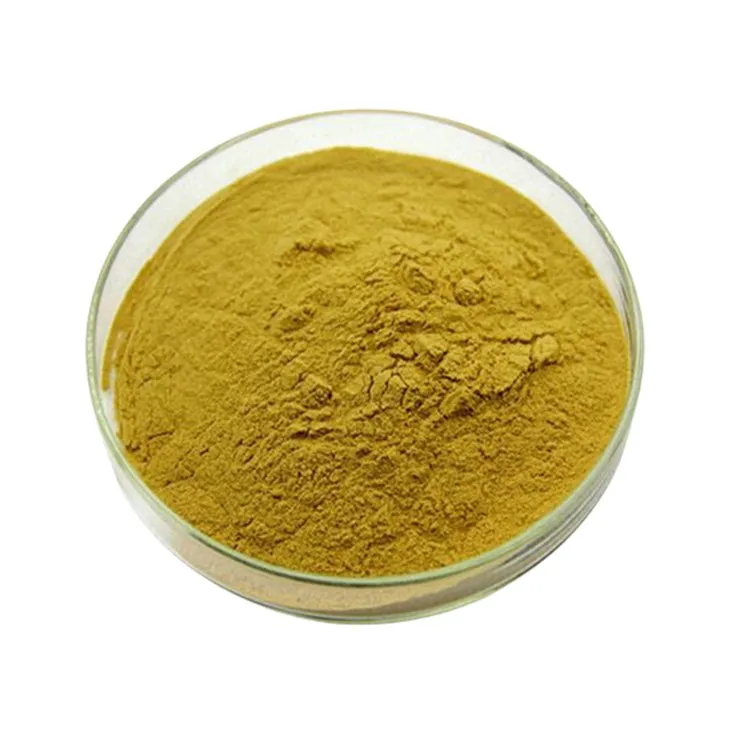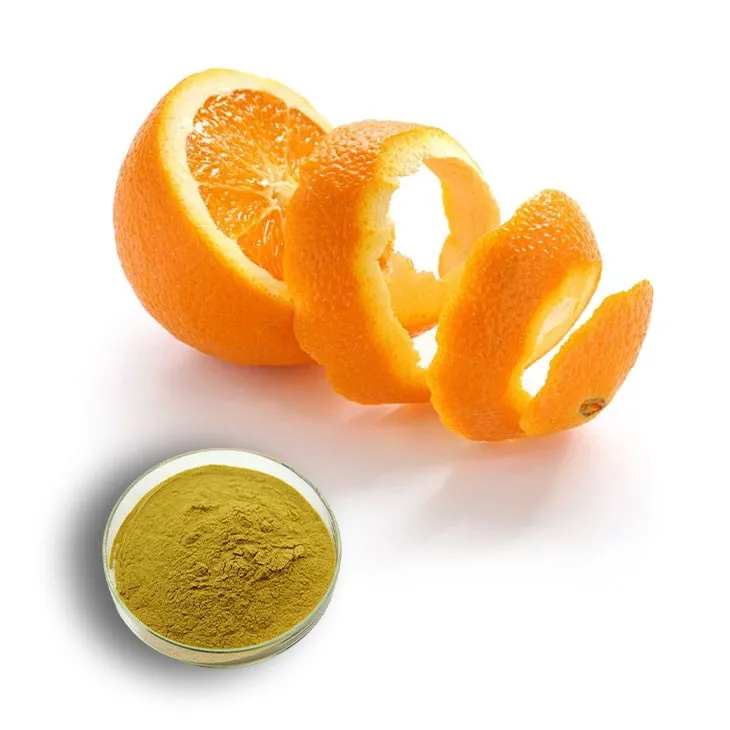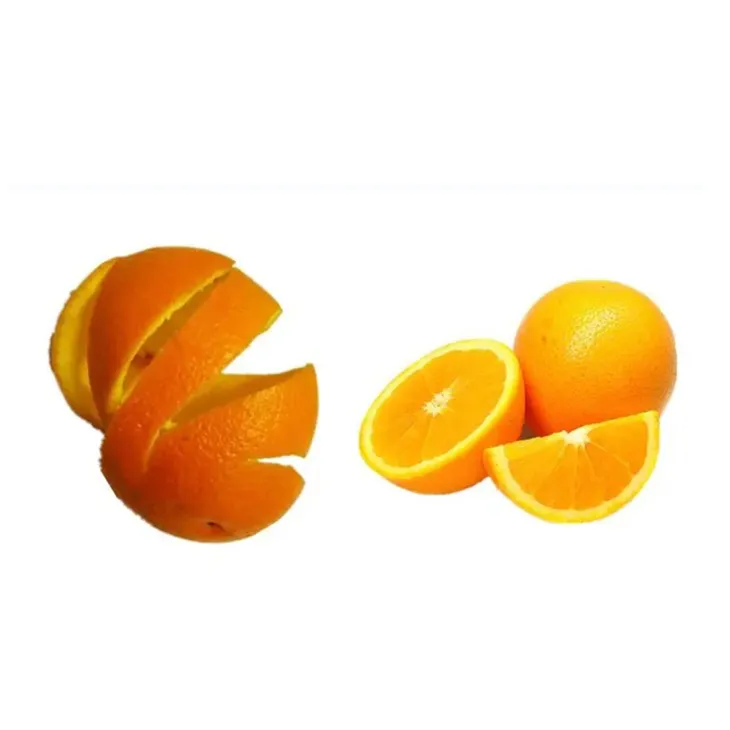- 0086-571-85302990
- sales@greenskybio.com
Hesperidin: A Guide to Safe and Effective Long-Term Use
2025-07-20

Hesperidin, a bioflavonoid predominantly found in citrus fruits like oranges and lemons, has garnered attention for its numerous health benefits, particularly in supporting vascular health and reducing inflammation. As dietary supplements containing Hesperidin become increasingly popular, many people wonder about the safe duration for taking this compound. This article delves into the nature of Hesperidin, its health benefits, recommended dosages, and guidelines for long-term use.
Understanding Hesperidin
Hesperidin is one of the many bioflavonoids present in the peel and pulp of citrus fruits. It is known for its potent antioxidant, anti-inflammatory, and vasoprotective properties. These properties make hesperidin an appealing supplement ingredient for promoting circulatory health, supporting immune function, and protecting against oxidative stress.
The compound works synergistically with vitamin C to enhance the body's absorption of both nutrients, leading to improved health outcomes. Hesperidin is commonly used in combination with another flavonoid, Diosmin, to treat conditions like chronic venous insufficiency and hemorrhoids.

Health Benefits of Hesperidin
1. Vascular Health: Hesperidin is beneficial for the cardiovascular system because it helps strengthen capillaries and improve blood flow. It supports the integrity of blood vessels, reducing risks related to varicose veins and poor circulation.
2. Anti-inflammatory Effects: This bioflavonoid exhibits significant anti-inflammatory effects, assisting in the reduction of inflammation-related conditions, such as arthritis and inflammatory skin disorders.
3. Antioxidant Properties: As a powerful antioxidant, hesperidin helps neutralize free radicals and protect cellular structures from damage. This protection may lower the risk of chronic diseases linked to oxidative stress.
4. Immune Support: Hesperidin enhances the immune system's functionality, improving resistance to infections and reducing the severity of cold and flu symptoms.
5. Antihistamine Activity: By influencing histamine release, hesperidin may offer relief from allergy symptoms, making it a natural contender for allergy management.

Recommended Dosages of Hesperidin
For most adults, the typical dosage of hesperidin ranges between 500 and 1500 milligrams per day. This dosage range, often divided into two to three smaller doses, is considered effective and generally well-tolerated for health maintenance and treating common conditions.
Hesperidin is often combined with Diosmin for therapeutic uses, mainly in formulations like Daflon, where a typical ratio is 9:1 (Diosmin to hesperidin). This combination is particularly effective in managing chronic venous disorders and hemorrhoids. When taking such formulations, following the directions given by a healthcare provider or noted in the product packaging is essential.

Long-Term Use of Hesperidin
Many people consider taking hesperidin over extended periods for its sustained health benefits. However, it's crucial to approach the long-term use of any supplement with care, ensuring that its prolonged use supports overall health without adverse effects.
1. Safety of Long-Term Use
Studies indicate that hesperidin is generally safe for long-term consumption when taken at recommended dosages. Its safety profile is supported by its natural presence in the human diet, primarily through the consumption of citrus fruits. However, excessive intake beyond the recommended levels might lead to nutritional imbalances or minor side effects such as digestive distress.
2. Monitoring and Dose Adjustments
Prolonged supplementation of hesperidin should ideally be monitored through regular consultations with healthcare providers. These professionals can adjust dosages based on individual responses, health status, and any concurrent medications. Regular monitoring will help prevent potential adverse effects and contribute to achieving the desired health outcomes.
3. Interactions with Medications
Hesperidin may interact with certain medications, particularly those metabolized in the liver using similar pathways. Consider any ongoing prescriptions, and consult with a healthcare provider to evaluate the potential for interactions. For instance, anticoagulant medications may require careful consideration, as hesperidin's effects on vascular health could influence drug efficacy.
4. Periodic Evaluation
It's advisable to periodically evaluate the need for continued supplementation with hesperidin. Taking breaks between supplementation cycles can help assess its impact on health and test for dependencies. During these intervals, focus on consuming flavonoid-rich foods to maintain nutrient balance.
5. Nutrient Synergy and Diet
Long-term use of hesperidin is best supported with a diet rich in diverse nutrients. Incorporating a broad spectrum of flavonoids, antioxidants, vitamins, and minerals from a range of fruits, vegetables, and whole foods enhances the body's capacity to derive full benefits from hesperidin. A varied diet ensures holistic health support and augments the effects of supplements.

Conclusion: Making Informed Decisions on Hesperidin Use
Hesperidin offers a plethora of health benefits, making it a noteworthy supplement for supporting vascular health, combating inflammation, and boosting overall well-being. Long-term use is typically safe and can be highly beneficial when managed thoughtfully and with professional guidance.
By adhering to recommended dosages and understanding individual health needs, users can safely incorporate hesperidin into their daily routines. A balanced diet rich in natural sources of bioflavonoids further enhances its efficacy, while consistent monitoring ensures safety and optimizes health outcomes.
Ultimately, making informed decisions regarding hesperidin supplementation—consulting healthcare providers, understanding possible interactions, and aligning supplementation with comprehensive dietary habits—allows individuals to harness this powerful bioflavonoid's benefits effectively. As research continues to explore and validate hesperidin's far-reaching health effects, it remains a promising ally in natural health management.
Green Sky Bio provides the best extracts and supplements. It is a century-old brand that is trustworthy! Welcome to email us to inquire about our products.
- ▶ Hesperidin
- ▶ Citrus Bioflavonoids
- ▶ Plant Extract
- ▶ lycopene
- ▶ Diosmin
- ▶ Grape seed extract
- ▶ Sea buckthorn Juice Powder
- ▶ Fruit Juice Powder
- ▶ Hops Extract
- ▶ Artichoke Extract
- ▶ Mushroom extract
- ▶ Astaxanthin
- ▶ Green Tea Extract
- ▶ Curcumin
- ▶ Horse Chestnut Extract
- ▶ Other Product
- ▶ Boswellia Serrata Extract
- ▶ Resveratrol
- ▶ Marigold Extract
- ▶ Grape Leaf Extract
- ▶ New Product
- ▶ Aminolevulinic acid
- ▶ Cranberry Extract
- ▶ Red Yeast Rice
- ▶ Red Wine Extract
-
Saffron Extract Powder
2025-07-20
-
Tongkat Ali Extract
2025-07-20
-
Cactus Extract
2025-07-20
-
Curcumin Extract
2025-07-20
-
Cranberry Extract
2025-07-20
-
Curcuma Longa Extract
2025-07-20
-
Nutmeg Extract
2025-07-20
-
Golden Seal Extract
2025-07-20
-
Buckthorn bark extract
2025-07-20
-
Jujube Extract
2025-07-20





















